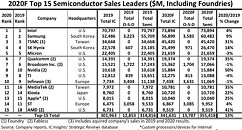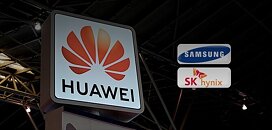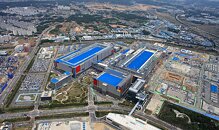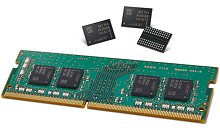
A Christmas Miracle: 500,000 NVIDIA RTX 3080 Cards Found in Lost Shipping Container
Stock for NVIDIA's latest RTX 30-series graphics cards has been a nightmare for customers across the world, with demand far outstripping supply. This opened up a proverbial can of worms, with scalpers taking to the world wide web, casting their own nets in taking advantage of not only the pandemic (and peoples' refuge in gaming in these uncertain times), but also of said unmet demand. So it has to be nothing short of a Christmas miracle that 500,000 NVIDIA RTX 3080 graphics cards have just been found in an unmarked shipping container in South Korea. The container wasn't registered in the port authority, and was therefore left unopened and unprocessed.
The graphics cards were stored in the container absent of any proper documentation by Samsung, as early as August of this year. Jeff Fisher, vice president of NVIDIA and head of the GeForce division, said in a statement to the company's shareholders that "We've been asking Samsung for this shipment for months. They told us that she had already left the factory, but then they did not present us with any document proving that she had reached her destination". These newfound graphics cards will now be correctly processed and put into the channel.Geeknetic.es made this as a part of the Spanish Fool's Day, which is December 28th. However, considering the current state of the RTX (and AMD RX) market, this is a nice satirical gotcha which I'll keep on TPU. Let's laugh at our misery instead of wallowing in it.
The graphics cards were stored in the container absent of any proper documentation by Samsung, as early as August of this year. Jeff Fisher, vice president of NVIDIA and head of the GeForce division, said in a statement to the company's shareholders that "We've been asking Samsung for this shipment for months. They told us that she had already left the factory, but then they did not present us with any document proving that she had reached her destination". These newfound graphics cards will now be correctly processed and put into the channel.Geeknetic.es made this as a part of the Spanish Fool's Day, which is December 28th. However, considering the current state of the RTX (and AMD RX) market, this is a nice satirical gotcha which I'll keep on TPU. Let's laugh at our misery instead of wallowing in it.




























